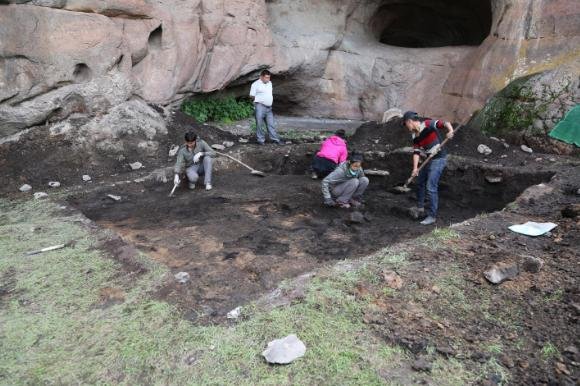Researchers discovered grain samples 5,200 years old in a cave in Altai Mountains, indicating that Eurasian crop exchanges occurred considerably earlier in history than originally thought. Photo by Xinying Zhou
Feb. 14 (UPI) -- Agricultural crops were traded between European and Asian populations 3,000 years earlier than thought, a scientific study published this week indicates.
A cave excavation by Chinese scientists in the eastern Altai Mountains -- which border China, Mongolia, Kazakhstan and Russia -- yielded cereal grains radiocarbon-dated to be 5,200 years old.
The samples are the oldest recorded examples of wheat and barley farming ever recorded in that area of Asia, and move the dates for early farming in the region backward by at least 1,000 years.
The discovery also reinforces the theory that Asian and European cross-development of agriculture and technology long predates the Silk Road network of trade routes, which began around the 2nd century. The early exchanges played a crucial role in shaping cultural development across Europe and Asia, researchers say
The study, led by Dr. Xinying Chou, with the involvement of the Chinese Academy of Sciences and Germany's Max Planck Institute for the Study of Human History, was published this week in the scholarly journal Nature Plants.
Researchers reveal how humans cultivated crops at relatively northern latitudes, and how they did so. The precursors of modern wheat and barley were normally grown at lower altitudes and in warmer climates, and the study indicates the crops' adaptability to harsher conditions.
Millet, made from cereal grains, later became an important crop in ancient Europe, and wheat became a staple crop in Asia during China's Han Dynasty, which began in the 2nd century B.C.
"This discovery is a testament to human ingenuity and the amazing co-evolutionary bond between people and the plants that they maintain in their cultivated fields," Zhou said in a press release.















